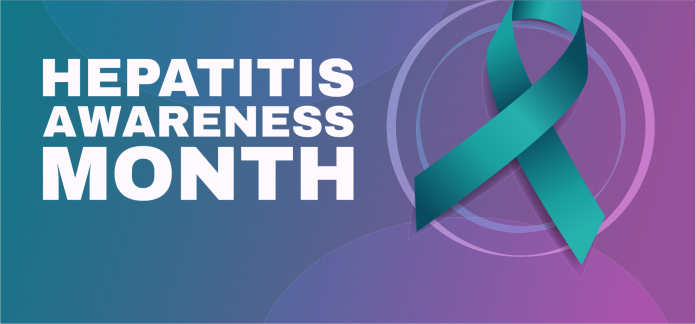PHILADELPHIA— Approximately 75,000 Philadelphians and 7 million Americans nationwide are living with hepatitis B and C infections. More individuals have not been diagnosed and thus do not know they can be in life saving care or receive a cure for their viral hepatitis. In an effort to address these severe health issues, which are the leading causes of liver cancer and the most common reason for liver transplants, the Philadelphia City Council has declared May 2022 to be Hepatitis Awareness Month in Philadelphia. This proclamation recognizes and supports the joint efforts of “Hep B United Philadelphia” and “Hepatitis C Allies of Philadelphia,” which are aimed at raising the profile of hepatitis B and hepatitis C as urgent health priorities and taking steps to eliminate them in Philadelphia.
During the month of May, the Health Department is urging city residents to educate themselves about hepatitis B and C. People should know how to prevent infections, including through vaccination for hepatitis B, to know when and how to get screened for either infection–even if you have no symptoms, and that treatment is safe and effective, and in the case of hepatitis C can cure you of the disease. You can go to the following CDC and Health Department websites for more information and resources:
https://www.cdc.goc/hepatitis/resources/patientedmaterials.htm
As stated by Danica Kuncio, the Health Department’s Viral Hepatitis Program Manager, “This proclamation by City Council is an exciting positive step towards raising awareness of the impact these two conditions have on our city’s residents. But Philadelphia still has a long journey before we can reach elimination of hepatitis B and C.”
Hepatitis B is the world’s most serious liver infection. It causes over 80% of primary liver cancer cases in the world and disproportionately affects Philadelphia’s Asian and Pacific islander communities, as well as those of African descent. Chronic hepatitis B infections kill 1 in 4 chronically infected persons prematurely from cirrhosis and liver cancer or liver failure. Fortunately, hepatitis B is completely preventable with a safe and effective vaccine–which is recommended by the CDC for all adults 19-59 years of age and even available at many pharmacies throughout Philadelphia. Nevertheless, less than 40% of individuals considered to have elevated risk are vaccinated. Treatment for hepatitis B is available, and the disease progression is manageable with the support of a healthcare provider.
In addition, hepatitis C is the most common bloodborne infection in the U.S., with more than 50,000 Philadelphians having tested positive for hepatitis C. However, since most people show no symptoms of having the infection, many people remain undiagnosed and untreated. Hepatitis C, is treated with pills that are very well tolerated and cure individuals of the virus in just a few months. Unfortunately, despite there being a readily available cure for hepatitis C, fewer than 40% of residents receive care and treatment for hepatitis C. Nationally, hepatitis C kills more people than HIV/AIDS. Luckily, preventing transmission is possible by practicing harm reduction and safe sexual practices. Testing is available throughout Philadelphia, and there are many providers who can treat and cure anyone living with hepatitis C.
There are many more resources available in Philadelphia for anyone living with hepatitis B and/or hepatitis C, and the Health Department encourages families and friends to support their loved ones who have a diagnosis or may need to be tested for hepatitis B and C.
The City of Philadelphia’s commitment to combating these two potentially severe conditions will continue past the month of May.
The Health Department, in collaboration with community partners, is developing a citywide Hepatitis B and C Elimination Plan. More information on Elimination Plan activities and opportunities for public comment will be forthcoming.
For more information on where to get tested in Philly for hepatitis B and C, go to: www.phillyhepatitis.org. For more information on where to get vaccinated for hepatitis A and B, go to: www.hepcap.org.


